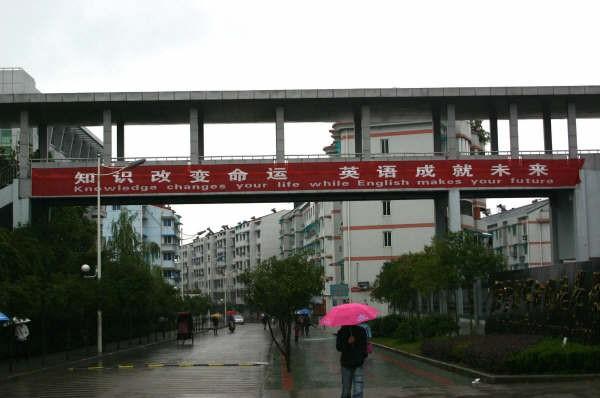
January 15, 2014, by Tony Hong
The Changing State of English Education in China
By Daryl Johnson,
PhD student in Applied Linguistics,
The University of Nottingham Ningbo China.
English language has a tempestuous place in Chinese history. During and shortly after the Opium Wars, English was seen as the language of ‘barbarians’ and later during the Cultural Revolution, it was the language of the enemy capitalists and a symbol of political dissent. This period saw the persecution of the educated, especially foreign language teachers, the number of whom fell drastically as result. There has, however, since been an upheaval of this trend in more recent years and China began to find itself with a shortage of trained English language teachers. The employment rate of qualified educators has not kept up with the demand for English education. In 2004 there was an estimated 300,000 English teachers in China but 40m. primary and vocational school students and by 2013, there were approximately 300m. English language learners (note that the total population of the USA is in the region of 300m. people). After the implementation of capitalist market reforms in the late seventies, the status of English as a global language was recognised. English was thought to provide access to global scientific and technological advancements and a population proficient in this language was regarded as a key to modernity and first world living standards for all Chinese. This is one explanation for the high status of English in China and its position as a mandatory subject on the gaokao (College Entrance Exam) for senior students in both the Science and Art programs. English is a significant component of China’s national nine year compulsory education scheme as it is introduced at grade 1 of the primary school curriculum. The political relation between English and China cannot be understated.
Therefore, how might we interpret recently planned reforms to English education that would see it introduced into the primary curriculum two years later and, though still a national compulsory subject will see its weight on the gaokao reduced as of 2016 from 150 points to 100? The prominence of Chinese is also planned to increase from in 150 to 180 points in light of criticism from university professors that students’ skills in Chinese are falling. The format of the English section of the exam is also due to change. Students will be permitted to retake the English section of the exam at intervals during their senior education, giving them the opportunity to retake the test until they obtain a satisfactory score. This would reduce some of the pressure felt by senior students to perform at their very best on one particular day and has been a welcome amendment to the much-criticised gaokao exam.
If we were to correlate these facts, could this be indicative of a decline in the significance and importance of English in China and if so, what might this mean? With the largest number of speakers of a given language in the world, mandarin Chinese is not under threat of extinction. The number of learners of Mandarin is similarly increasing with a growing number of schools worldwide introducing it onto their foreign language syllabi. Might we be witnessing a rise in China’s confidence in its ability to perform on the global economic stage? Could this also have implications for the future role of English as one of the world’s primary lingua francas? As China’s economic power increases, might Mandarin become an official language of institutions with global significance? Might children all one day be learning nĭ hăo on their first day of school? Interesting times are indeed ahead.
No comments yet, fill out a comment to be the first

Leave a Reply